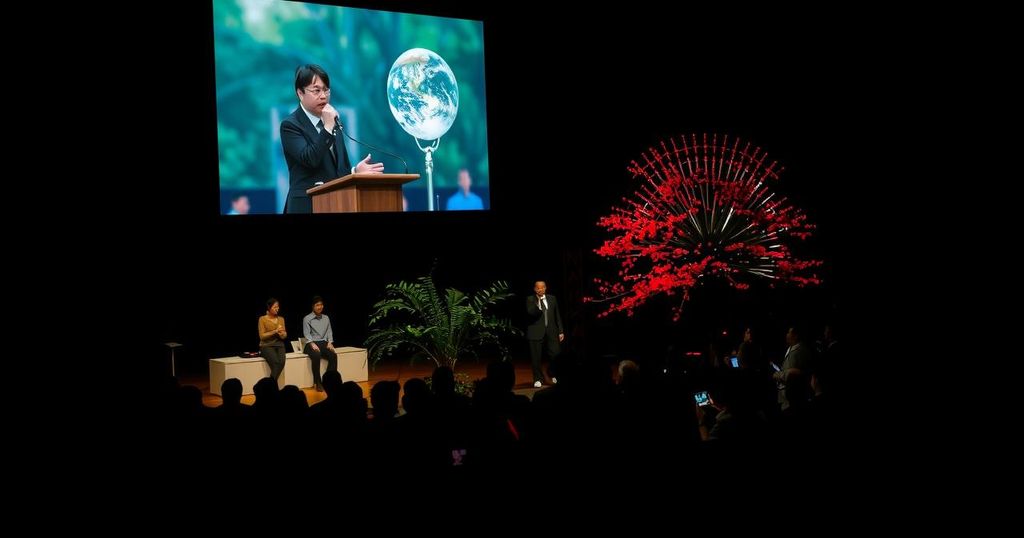COP29 must focus on climate justice, emphasizing the disproportionate impact of climate change on the Global South. While wealthier nations historically contributed to environmental damage, developing countries require support through climate finance and technology transfer. The failure to adequately address these disparities necessitates a commitment to equitable resource distribution and international collaboration for effective climate action.
The imperative for climate justice must dominate discussions at COP29, particularly as the most vulnerable populations—those contributing the least to climate change—face disproportionate impacts. The wealth amassed by developed nations has perpetuated environmental degradation, primarily affecting countries in the Global South. Statistics reveal that the wealthiest 10% of the global population is responsible for nearly half of greenhouse gas emissions, whereas the lower-income nations emit only a fraction of that. With challenges like drought and severe weather exacerbating these inequalities, COP29 must provide solutions that incorporate the needs and voices of developing countries. The recent election of known climate skeptic Donald Trump signifies a step back for global climate initiatives. As yet another senior figure at COP29 attempts to exploit the conference for oil business gains, the call for climate justice becomes even more urgent. The fundamental inequities necessitate an understanding of how climate action disproportionately affects the transgressors—those in industry-rich nations who have historically benefited from carbon-heavy practices—while crippling those still on the path to industrialization. Developing nations require substantive support through climate finance and technology transfer, as envisioned during the COP15 commitment of US$100 billion annually by 2020, which faced delays. To ensure fairness in climate action, as all nations share the responsibility for environmental conservation, it is crucial to validate the rights of poorer countries to have an equal say in future global policies. The principles of climate justice must permeate all facets of international governance, governing trade policies and development financing. Although existing frameworks such as the Green Climate Fund and the Loss and Damage Mechanism serve as critical resources, a more vigorous approach is necessary to address the underlying injustices. Greater financial involvement from wealthier nations is paramount to foster lasting climate solutions. The growing crisis of climate refugees illustrates the need for developed nations to confront the consequences of inaction. By assisting the Global South with their climate issues, developed countries can mitigate the factors that lead individuals to leave their homes. This consequential logic—underpinned by a collective understanding of humanitarian responsibility—could catalyze meaningful climate action. As COP29 approaches, the focus must shift toward adequate financing mechanisms that emphasize equity in reducing greenhouse gas emissions. In the words of UN Secretary-General António Guterres, “climate finance is not charity, it’s an investment in the collective well-being of all humanity.” Thus, fostering discussions around equitable funding for mitigation and adaptation strategies is critical for the success of global climate initiatives.
Climate change exerts varying degrees of influence globally, with the most economically disadvantaged regions disproportionately suffering its adverse effects. Historical exploitation by developed nations has led to substantial wealth accumulation while rendering poorer countries beneath the environmental burden. Despite their lower emissions, populations in the Global South face dire consequences from climate-induced disasters. The failure of international climate negotiations to adequately address these disparities highlights the urgent need for a more equitable approach.
To address climate injustice effectively, COP29 must prioritize equitable resource distribution while recognizing the unique challenges faced by the Global South in the context of climate change. Action must extend beyond existing frameworks, requiring renewed financial commitments and thoughtful integration of climate justice in policy-making. Only through authentic collaboration and fairness can sustainable solutions emerge, safeguarding the rights and needs of all nations involved. The path to collective climate resilience is rooted in both human rights and shared accountability.
Original Source: theconversation.com






